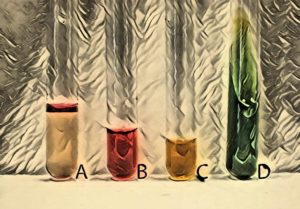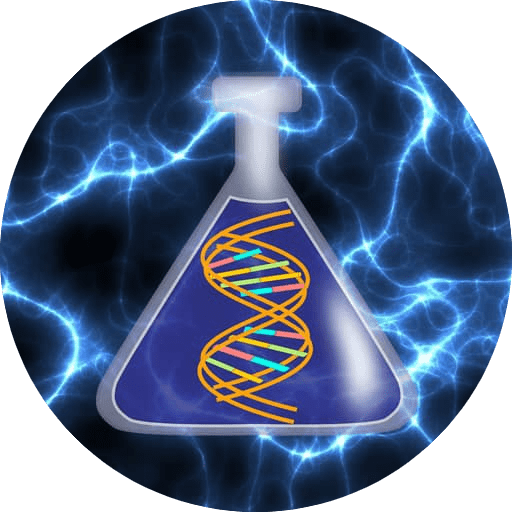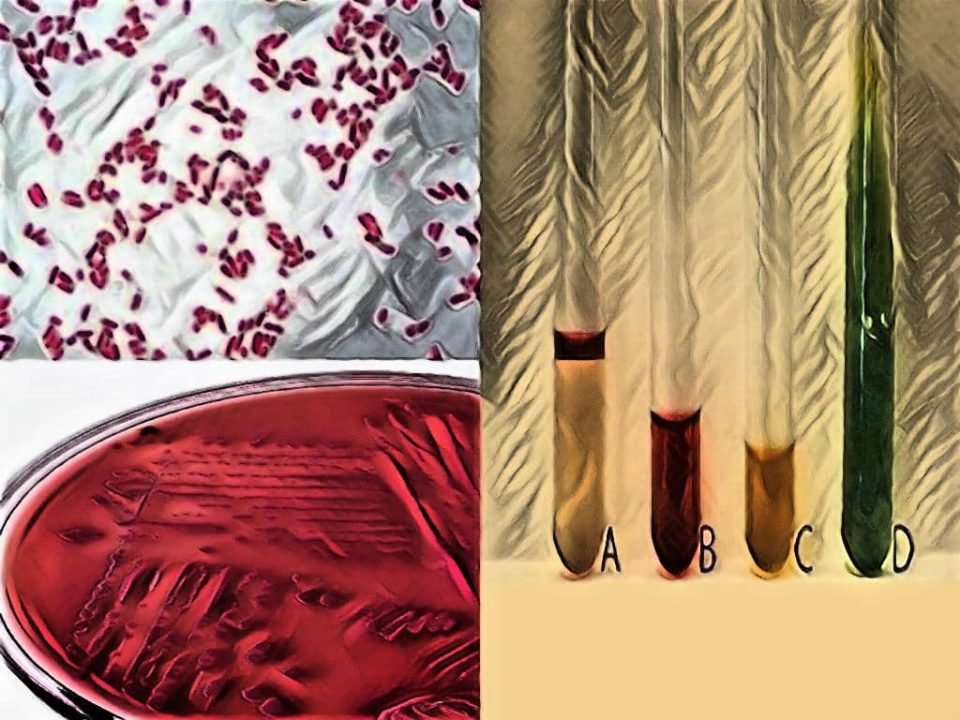Hey, Good to see you here 😀 …… In this Article, we’re gonna discuss in detail about various biochemical tests for Klebsiella pneumoniae….. If you have any queries, don’t forget to mention in Comments…Thanks
In this Article, we’re gonna discuss so many biochemical reactions for the well known causative agent of UTI (Urinary Tract Infections), Diarrhea & Pyogenic Infections i.e. the Escherichia coli abbreviated as E. coli, but a few reactions are most commonly used and are medically important for distinguishing pathogenic strains of E. coli from other non- pathogenic strains as well as from other species of Escherichia which are as follows:
Indole Positive
Methyl Red Positive
Citrate Negative
Urease Negative
Voges – Proskauer Negative
LF colonies on MacConkey agar medium
Unable to produce H2S
Besides that of various biochemical reactions and Sugar fermentation tests, certain enzymatic reactions are also medically important to distinguish Escherichia coli from other Escherichia sp.

Below is the list of these Enzymatic Reactions and various other biochemical tests for Escherichia coli which have great importance in research and for knowledge but are not routinely employed:
TESTS RESULTS
Acetate Utilization +VE (POSITIVE)
Alkaline Phosphatase +VE (POSITIVE)
Indole +VE (POSITIVE)
Methyl Red +VE (POSITIVE)
Nitrate Reduction +VE (POSITIVE)
ONPG +VE (POSITIVE)
Catalase -VE (NEGATIVE)
Citrate -VE (NEGATIVE)
Coagulase -VE (NEGATIVE)
DNase -VE (NEGATIVE)
Oxidase -VE (NEGATIVE)
Urease -VE (NEGATIVE)
VP (Voges Proskauer) -VE (NEGATIVE)
Arginine Dehydrolase VARIABLE (As per the Strain)
Escherichia coli and other species of Escherichia ferment various sugars producing acid with gas.
But these sugar fermentation tests are of no diagnostic value in routine laboratory tests except sucrose fermentation test, However, that is also not well understood and some strains are able to ferment sucrose as well, but it can be used in differentiating Escherichia coli, from other Pathogenic & non-pathogenic Escherichia species and Coliform bacteria.
The other sugar fermentation tests which are described below are of great importance in research work.
SUGARS RESULTS
Arabinose +VE (POSITIVE)
Dextrose +VE (POSITIVE)
Fructose +VE (POSITIVE)
Galactose +VE (POSITIVE)
Glucose +VE (POSITIVE)
Lactose +VE (POSITIVE)
Maltose +VE (POSITIVE)
Mannitol +VE (POSITIVE)
Mannose +VE (POSITIVE)
Melibiose +VE (POSITIVE)
Rhamnose +VE (POSITIVE)
Sorbitol +VE (POSITIVE)
Xylose +VE (POSITIVE)
Adonitol -VE (NEGATIVE)
Dulcitol -VE (NEGATIVE)
Cellobiose -VE (NEGATIVE)
Raffinose -VE (NEGATIVE)
Salicin -VE (NEGATIVE)
Sucrose -VE (NEGATIVE)
Trehalose VARIABLE (depends on strain)
That’s all about the various Biochemical tests for Escherichia coli (E. coli).
Frequently Asked Questions (FAQs)
Q1. What is the biochemical test for Escherichia coli?
The most commonly used biochemical test for Escherichia coli is the IMViC test, which includes four individual tests: indole, methyl red, Voges-Proskauer, and citrate utilization. The results of these tests help to differentiate E. coli from other members of the Enterobacteriaceae family.
Q2. What are the biochemical features of Escherichia coli?
Escherichia coli is a gram-negative, facultative anaerobic bacterium that is able to ferment lactose and produce acid and gas. It is also able to oxidize glucose and produce indole. These biochemical features, along with others, are used to identify and differentiate E. coli from other bacterial species.
Q3. What is oxidase test in E. coli biochemical test?
The oxidase test is not typically used in the biochemical testing of Escherichia coli. This test is used to determine the presence of the enzyme cytochrome c oxidase in bacterial species, which is not present in E. coli.
Q4. Which of the lab tests are consistent with Escherichia coli?
The most consistent lab tests for Escherichia coli include the ability to ferment lactose, produce acid and gas, and produce indole. Other tests, such as the citrate utilization test, may also be used to differentiate E. coli from other bacterial species.
Q5. Is E. coli positive for indole test?
Yes, Escherichia coli is positive for the indole test. This test is used to detect the presence of the enzyme tryptophanase, which breaks down tryptophan to produce indole, pyruvic acid, and ammonia. E. coli is able to produce indole and is therefore positive for this test.
Q6. What is indole testing for E. coli?
Indole testing is used to detect the presence of the enzyme tryptophanase in bacterial species. This enzyme breaks down tryptophan to produce indole, pyruvic acid, and ammonia. Escherichia coli is able to produce indole and is therefore positive for this test.
User Review
( votes)
Laboratory Hub aims to provide the Medical Laboratory Protocols & General Medical Information in the most easy to understand language so that the Laboratory Technologist can learn and perform various laboratory tests with ease. If you want any protocol to be published on Laboratory Hub, Please drop a mail at contact@laboratoryhub.com. Happy Learning!

